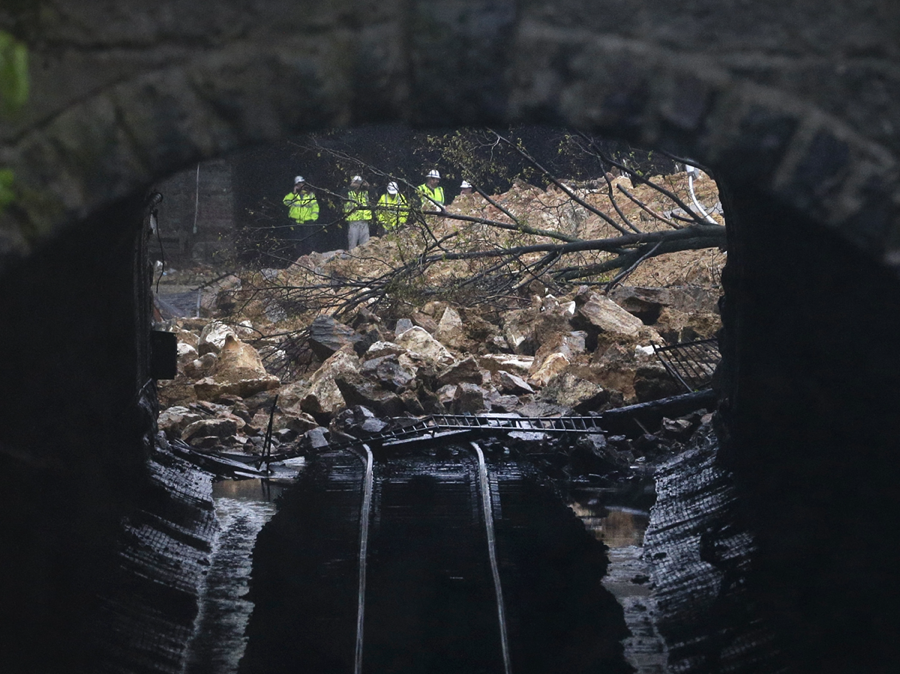A federal appeals court in Virginia heard a landmark case Tuesday that seeks to hold major fossil fuel companies accountable for their role in climate change. The court’s decision in the case will have implications for a raft of similar cases brought by cities, counties and states across the country.
The case was brought by the city of Baltimore against some of the biggest oil and gas companies in the world, and it hinges on alleged disinformation by the corporations. The Baltimore city government argues that the companies must help pay for the costs of climate change, because they misled the public about how their products contribute to global warming.
Like many cities in the United States, Baltimore has borne enormous and escalating climate costs, including millions of dollars of damage from floods and expensive infrastructure upgrades to address dangerous heat waves and rising seas.
Baltimore was one of the first places to file a lawsuit seeking damages from fossil fuel companies. Since then, numerous cities, including Oakland, Calif., New York, N.Y., Annapolis, Md., Charleston, S.C. and Honolulu, Hawaii have pursued similar suits. So have several states, including Minnesota, Delaware and Rhode Island.
None of the cases has progressed far enough for a judge or jury to hear any substantive arguments about whether oil and gas companies should pay for the damages caused by burning fossil fuels. Instead, the fossil fuel companies have focused their defense on the narrow jurisdictional question of whether such lawsuits can proceed in state courts, where they were originally filed.
The Supreme Court considered the jurisdiction question in the Baltimore case last year, and decided that a federal appeals court should decide where the Baltimore lawsuit is heard, paving the way for today’s arguments before a three-judge panel for the Fourth Circuit Court of Appeals.
The decision by the appeals court could affect the outcomes of other cases, especially the lawsuits brought by cities and counties that fall within the jurisdiction of the Fourth Circuit, such as Charleston, S.C. and Annapolis, Md. For example, if the appeals court finds that Baltimore’s lawsuit can be tried in state court, that decision would also apply to the suits brought by those cities.
In his statement on behalf of oil and gas companies, attorney Kannon Shanmugam argued that state court is the wrong place for the lawsuit because climate change is global in scope, and is regulated by the federal government and by international agreements.
The National Association of Manufacturers, an industry group, made an even more sweeping argument in a brief filed in support of the companies, writing, “state courts are not positioned to decide who, if anyone, is to be legally accountable for climate change, how energy policies should change to address it, and how local mitigation projects should be funded.”
Karen Sokol, a law professor at Loyola University New Orleans who studies climate liability cases, says that argument doesn’t hold water, because the allegations against the companies hinge on state laws that are meant to protect the public from misleading marketing.
Baltimore is asking state courts to weigh in on what Sokol calls a “long-standing, systematic deceptive marketing campaign designed to hide the catastrophic dangers,” of fossil fuels. Cases about consumer protection, including landmark lawsuits involving alleged corporate misinformation campaigns by tobacco companies, have historically been tried in state court.
In his statement on behalf of Baltimore’s government on Tuesday, attorney Vic Sher argued the case is about “disinformation and lack of disclosure.”
Because the question of jurisdiction is still unresolved, neither side presented any evidence Tuesday about the underlying question: whether oil and gas companies are liable for misleading the public about how burning fossil fuels causes catastrophic climate change. The appeals court is expected to announce its decision about jurisdiction later this year.
Copyright 2022 NPR. To see more, visit NPR.




